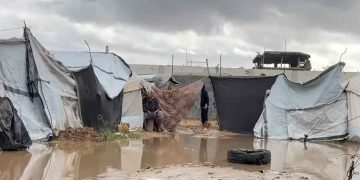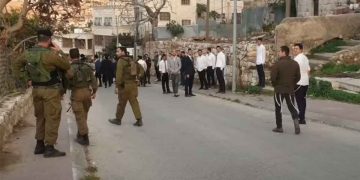In the Al-Nasr neighbourhood, west of Gaza City, Monday evening’s explosion was not an isolated incident but rather part of a dangerous pattern threatening civilians since the end of direct military aggression. The blast, which occurred inside a multi-storey home belonging to the Al-Fayri family, resulted in the deaths of two Palestinians and injuries to others. This incident once again highlights the ongoing danger posed by unexploded ordnance and remnants of war left behind by the occupying forces in areas from which they withdrew.
The home, previously struck during the months of mass killings, still contained buried explosives within the rubble. According to eyewitnesses, the explosion took place while some children were tampering with the remnants—an alarming reality faced by families returning to homes they believed were safe.
On the same day, three more children were injured in separate explosions caused by military remnants in Al-Shati (Beach) camp and Al-Tuffah neighbourhood.
The growing number of such incidents is causing increasing concern, as families now live in constant fear of unexpected explosions, whether at home, in open areas, or along the roads.
Given the lack of specialised civil infrastructure capable of dealing with the large quantity of unexploded ordnance, these remnants of war now pose a daily threat, particularly to the most vulnerable, children drawn to strange objects out of curiosity, and residents attempting to repair their homes without understanding the risks hidden in shattered walls.
This grim reality underscores a glaring absence of safety measures and reflects the continuing effects of war, long after the bombs have stopped falling. These remnants become a silent extension of violence, haunting civilians and obstructing their return to normal life. With explosives scattered among residential areas, every step becomes a gamble. This places a heightened responsibility on relevant authorities to act swiftly, and on the international community to provide urgent support for clearance operations, before these remnants claim even more lives in a region already devastated by years of bombardment and destruction.




























